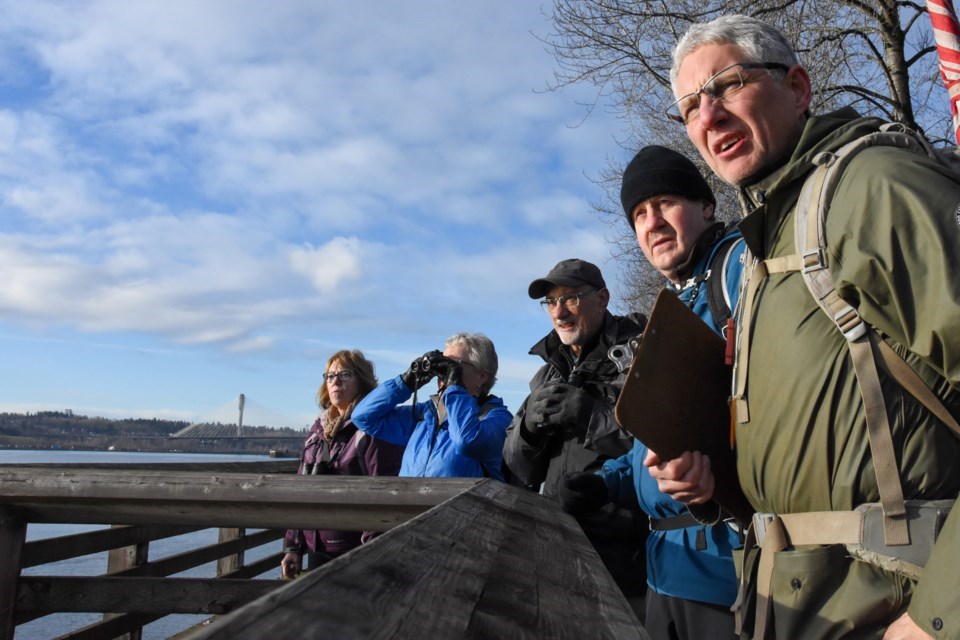An annual count of birds in Coquitlam, Port Coquitlam, and Port Moody turned up the fewest number of species on record.
But COVID-19 and windy, wet weather are blamed for the poor showing during the annual Christmas Bird Count on Jan. 2.
This year there was no effort to promote the event or recruit volunteers so a small band of die-hard naturalists took to local parks, greenbelts and shorelines to count species on their own.
Their effort, though admirable on a particularly stormy day, failed to turn up many different bird species.
But organizer Victoria Otton hopes it was the weather that kept birds hidden and fewer participants that resulted in the low count, not an actual decline of bird species in the region.
“It was a much scaled-down event, with last year's team leaders taking just a few observers along with them and repeating last year's routes. Not all routes got covered, and some routes were shortened. There were no new volunteers recruited and no promotion of the event this year,” Otton said in an email to the Tri-City News.
Consequently, the birders saw fewer than usual species, just 64, compared to the average of 83 seen annually over the 22 years of the local bird count.
Last year's pre-COVID-19 bird count was a success, with dozens of species counted, and a sunny day for birders.
The highest number of species ever counted was 98, and the lowest in previous years was 72, according to Otton who said: “It's likely that the low number this year was due to a combination of the poor weather and lower effort by us.”
The annual Audubon Christmas Bird Count, is the longest-running community science project across the Americas.
From its beginning in 1901, when it first set out to document a snapshot of avian life “For the People, For Education, For Science,” thousands of birders of all stripes have gathered one day, once a year in January or February to take stock of which species are flourishing, which are struggling and which have been pushed to the brink of extinction.
Among the birds counted locally this year were Pine Siskin, which have been identified in greater numbers in the Lower Mainland, with some contracting salmonella possibly from dirty bird feeders.
Pine Siskin are an irruptive species, which means they proliferate in certain positive conditions. However, Otton said counters only saw 151 birds on this year’s count, compared to 2014, when 414 birds were counted in the Tri-Cities.
And while she hasn’t seen any sick birds at her feeder, Otton said she is taking extra care about feeder hygiene to ensure that it’s clean and the bacterial disease isn’t passed on.
According to the Burnaby-based Wildlife Rescue Association, salmonellosis is primarily transmitted by fecal contamination of food and water by sick birds, although it can also be transmitted through bird-to-bird contact.
The public is urged to either maintain strict feeder hygiene or take down bird feeders until the end of February when the Pine Siskins depart.
— With files from Stefan Labbé


